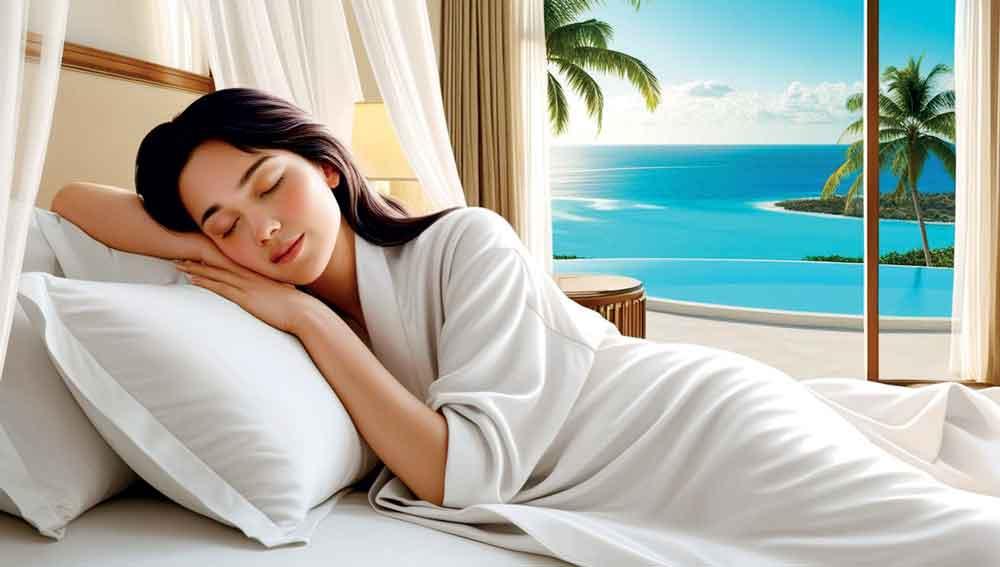
Once, the perfect holiday was measured by jam-packed itineraries, late-night adventures, and nonstop stimulation. Today, a growing trend is flipping that idea on its head: sleep tourism. The concept is simple but revolutionary; travel experiences built entirely around the promise of better sleep. In an era of burnout, anxiety, and constant digital connectivity, travellers are no longer chasing only new sights or thrills; they’re seeking the one luxury that's become most elusive – rest!
The Rise of Sleep Tourism
Sleep tourism isn't just a clever marketing gimmick. It's an authentic response to global health concerns. The World Health Organization classifies sleep disorders as a major health issue, with millions suffering from insomnia, sleep apnea, and chronic fatigue. Add the emotional toll of the pandemic and the ‘always-on’ culture fuelled by technology, and it's no surprise that people are willing to invest in professional-grade rest. Hotels, resorts, and wellness retreats around the world are now designing entire experiences around the science of sleep. And these aren't your average spa weekends. We’re talking about stays curated by neuroscientists, sleep specialists, nutritionists, and yoga therapists, all working together to create the perfect environment for restorative sleep.
What a Sleep-Focused Retreat Looks Like
Imagine checking into a hotel where your journey doesn’t begin at the bar or by the pool, but in a consultation room with a sleep expert. Your mattress? Custom-fitted. Your pillow? Scientifically chosen based on your sleep habits and spinal alignment. Your room? Soundproofed, temperature-regulated, and scented with calming essential oils. The lighting gradually dims to mirror the natural sunset, and blackout curtains ensure not a single ray of outside light can disturb you. Beyond the room, the entire resort or retreat is often tailored to supporting your circadian rhythm. Menus are designed to encourage rest, rich in magnesium, melatonin-boosting fruits, and calming herbal teas. Wellness programs often feature guided meditation sessions, breathwork, low-intensity evening yoga, and classes on sleep hygiene techniques you can take home with you. Some retreats even use advanced sleep technology like EEG headbands, Oura rings, or in-room sleep tracking pods to monitor your patterns and offer real-time adjustments to your routine.
Psychologists say sleep retreats also tap into a profound emotional need. In a society that often equates busyness with success, choosing to prioritize sleep feels quietly rebellious; an act of
self-respect.
Where to Go for the Best Sleep Retreats
A handful of standout destinations have already become synonymous with the luxury sleep movement:
Six Senses, Ibiza
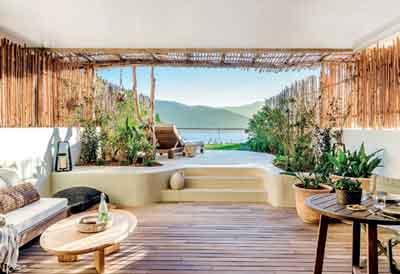
Already famous for its holistic wellness offerings, Six Senses in Ibiza now features a dedicated sleep program developed with leading sleep doctor Michael J. Breus. Guests undergo sleep tracking, therapy sessions, and are provided with take-home techniques to maintain improvements.
Hästens Sleep Spa, Portugal
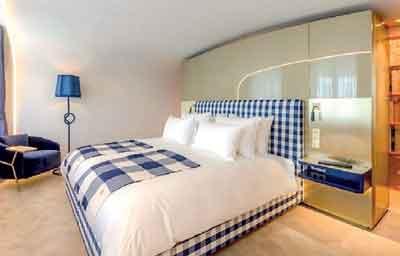
Hästens, the Swedish bedmaker known for its $100,000 mattresses, has opened a luxury Sleep Spa in Coimbra. Each room is designed around the brand’s handcrafted beds, and guests are coached through sleep routines with white noise machines, special soundscapes, and expert-led sessions.
Shanti Maurice, Mauritius
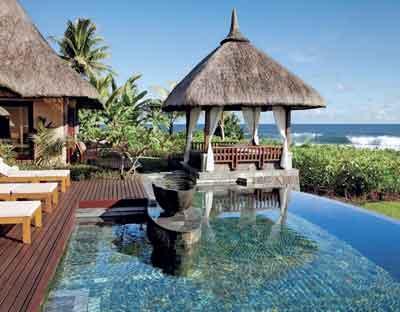
At Shanti Maurice, their 'Shanti Sleep' retreat combines Ayurvedic treatments, reflexology, personalized yoga, and sleep therapy under the stars, encouraging a deeper connection with natural rhythms.
Park Hyatt New York, United States
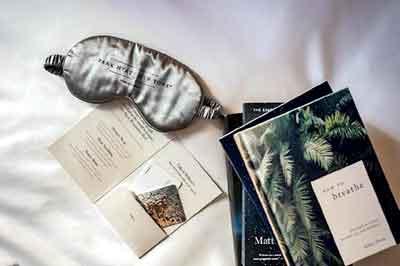
Park Hyatt’s 'Bryte Restorative Sleep Suites' offer guests an AI-powered smart bed that makes continuous micro-adjustments through the night. Sound therapy and aromatherapy are also incorporated into the stay.
Kamalaya, Thailand
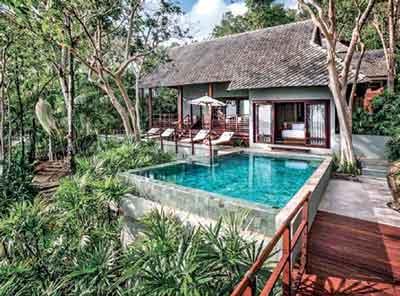
This holistic wellness sanctuary offers a ‘Sleep Enhancement’ program with acupuncture, massages, nutritional support, and emotional therapy aimed at reducing mental roadblocks to rest.
Why People Are Booking Sleep Holidays
At its heart, sleep tourism is a luxury; but it’s also deeply practical. Modern life leaves many running on empty, and the idea of using precious vacation days to catch up on rest feels increasingly worthwhile. Unlike traditional wellness retreats that often focus on fitness, weight loss, or detoxing, sleep retreats send a clear message: doing less is doing more. Participants aren't pushed toward goals, timed schedules, or intensive exercise; instead, they are encouraged to honour the body’s need to slow down, heal, and regenerate. Psychologists say sleep retreats also tap into a profound emotional need. In a society that often equates busyness with success, choosing to prioritize sleep feels quietly rebellious; an act of self-respect. It's about valuing wellness over productivity, mindfulness over achievement.
Rest is no longer an afterthought or a guilty pleasure; it's becoming a cornerstone of modern luxury.
The Science Behind It
The effectiveness of these retreats isn’t just anecdotal. Research shows that even short periods of improved sleep can drastically impact health outcomes. Better sleep boosts memory, emotional regulation, immune system function, and even creativity. By creating an environment specifically engineered for rest, free from digital distraction, environmental noise, and unhealthy habits, sleep retreats offer a rare opportunity for deep, uninterrupted sleep. Over several days, the body recalibrates. Stress hormone levels (like cortisol) drop, while restorative hormones (like melatonin and growth hormone) rise. Moreover, guided interventions like cognitive behavioural therapy for insomnia (CBT-I), offered at some high-end retreats, are clinically proven to yield longer-lasting improvements than medication.
Sleep Retreats: The New Status Symbol?
There’s also a cultural shift at play here. In the 2010s, luxury vacations were about exotic adventure and sharing picture-perfect moments on Instagram. In the 2020s, true luxury is being redefined as something quieter: health, peace, and privacy. Sleep retreats sit perfectly within this new mindset. Instead of jetting off to a crowded beach club or chasing social clout, people are investing in personal wellness. Getting a full eight or nine hours of restorative sleep in a five-star setting is increasingly seen as the ultimate indulgence. Some argue that sleep tourism highlights a sad reality: that rest, something which should be a fundamental right, has become a privilege for those who can afford it. And there’s truth to that criticism. But it’s also inspiring change at other levels, hotels of all types are beginning to adopt ‘sleep-friendly’ amenities, from better blackout curtains to pillow menus to noise-free floors.
Looking Forward: The Future of Sleep Tourism
As awareness grows, expect sleep tourism to evolve even further. Future retreats may include more personalized genetic testing, biohacking therapies, and AI-assisted coaching. Some luxury brands are already exploring collaborations with neuroscientists to create ‘smart rooms’ that adapt dynamically to your body’s needs throughout the night. There's also rising interest in integrating natural environments into sleep retreats. Forest bathing, starlit glamping, and eco-lodges deep in quiet wilderness are becoming popular, offering profound silence and a break from urban overstimulation. Ultimately, sleep tourism reflects a deeper awakening: the realization that living well isn’t about doing more, but about doing what sustains us. Rest is no longer an afterthought or a guilty pleasure; it's becoming a cornerstone of modern luxury. So, the next time you dream of your perfect getaway, consider making it all about dreaming itself. After all, the best souvenir you can bring back might just be a well-rested soul.











